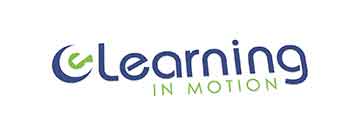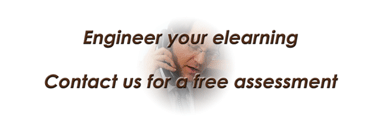Since I came to work for a Medical Program, the use eLearning had become increasingly popular in medical education. One of the key tools used in this approach is the use of discussion boards. I encourage professors to use the tool for their classes, every time they came back praising the tool because it had fostered a lot of ideas from students. Discussion boards can provide a powerful platform for learners to interact with each other, share ideas, and exchange information. In this article, we will explore some of the ways in which eLearning discussion boards can be used for medical education.
- Case-Based Learning
Case-based learning is a popular approach to medical education that involves presenting learners with real-life cases and asking them to analyze and discuss the information presented. Discussion boards can be used to facilitate this process by providing learners with a platform to share their thoughts and ideas on a particular case. Learners can discuss the case, ask questions, and provide feedback to each other. This can help to promote critical thinking, problem-solving, and collaboration among learners. - Peer Review
Peer review is a key component of medical education, as it allows learners to receive feedback on their work from their peers. Discussion boards can be used to facilitate this process by providing learners with a platform to post their work and receive feedback from their peers. This can help to promote collaboration, critical thinking, and self-reflection among learners. - Group Projects
Group projects are a popular approach to medical education, as they promote collaboration and teamwork among learners. Discussion boards can be used to facilitate group projects by providing learners with a platform to communicate with each other, share ideas, and collaborate on their project. Learners can use the discussion board to post updates on their progress, ask questions, and receive feedback from their peers. - Online Journal Club
Journal clubs are a popular approach to medical education, as they allow learners to discuss and critically evaluate current research in their field. Discussion boards can be used to facilitate online journal clubs by providing learners with a platform to post articles, share their thoughts and opinions, and discuss the findings of the research. This can help to promote critical thinking and self-reflection among learners. - Question and Answer Sessions
Question and answer sessions are a popular approach to medical education, as they allow learners to ask questions and receive answers from their peers and instructors. Discussion boards can be used to facilitate question and answer sessions by providing learners with a platform to post their questions and receive answers from their peers and instructors. This can help to promote collaboration, critical thinking, and self-reflection among learners. - Online Debates
Debates are a popular approach to medical education, as they promote critical thinking, problem-solving, and collaboration among learners. Discussion boards can be used to facilitate online debates by providing learners with a platform to post their arguments, respond to the arguments of their peers, and engage in a productive discussion. This can help to promote critical thinking and self-reflection among learners. - Peer Teaching
Peer teaching is a popular approach to medical education, as it allows learners to teach and learn from their peers. Discussion boards can be used to facilitate peer teaching by providing learners with a platform to post their teaching materials, receive feedback from their peers, and engage in a discussion about the material. This can help to promote collaboration, critical thinking, and self-reflection among learners. - Learning Communities
Learning communities are groups of learners who share a common interest in a particular topic. Discussion boards can be used to facilitate learning communities by providing learners with a platform to share their thoughts, ideas, and experiences with each other. This can help to promote collaboration, critical thinking, and self-reflection among learners.
In conclusion, eLearning discussion boards can be used in a variety of ways to enhance medical education. By facilitating case-based learning, peer review, group projects, online journal clubs, question and answer sessions, online debates, peer teaching, and learning communities, discussion boards can help to promote collaboration, critical
thinking, problem-solving, and self-reflection among learners. As the use of eLearning continues to grow in medical education, it is important for educators to consider incorporating discussion boards as a tool for facilitating learning and engagement among learners.
One of the key benefits of using discussion boards in medical education is the ability to promote collaboration among learners. By providing learners with a platform to share their thoughts and ideas, discussion boards can help to foster a sense of community and shared learning experience. This can help to improve learner engagement and retention of information.
Another benefit of using discussion boards is the ability to promote critical thinking and problem-solving skills among learners. By engaging in discussion and debate, learners are challenged to think critically about the information presented and to develop their own opinions and ideas. This can help to promote deeper learning and understanding of the material.
In addition, the use of discussion boards can help to promote self-reflection among learners. By sharing their work and engaging in discussion with their peers, learners are encouraged to reflect on their own learning and to consider ways in which they can improve their performance. This can help to promote a sense of ownership over the learning process and to encourage learners to take an active role in their own education.
Overall, the use of eLearning discussion boards in medical education can provide a powerful tool for enhancing the learning experience for learners. By promoting collaboration, critical thinking, problem-solving, and self-reflection, discussion boards can help to foster a sense of community and engagement among learners, and to promote deeper learning and understanding of the material. As eLearning continues to grow in popularity, it is important for educators to consider incorporating discussion boards as a key tool in their approach to medical education.
Please, leave a comment below. Like this post, share it with others. Thank you.


